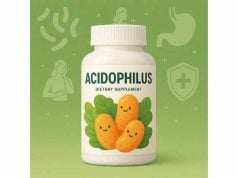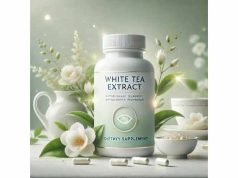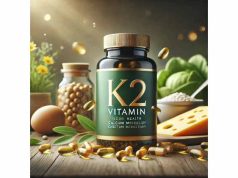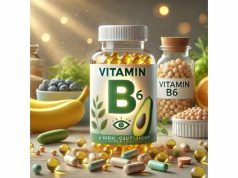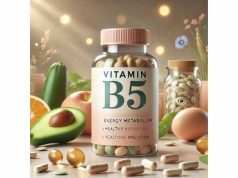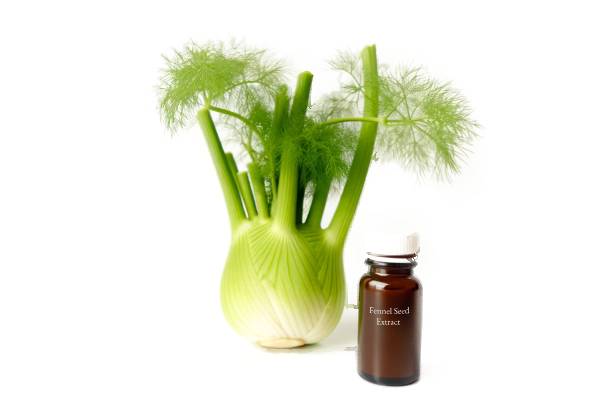
Fennel Seed Extract is gaining attention not only for its digestive and hormonal support but also for its promising role in maintaining optimal eye health and improving vision. Packed with potent phytonutrients, including antioxidants and anti-inflammatory compounds, this natural supplement may help protect delicate ocular tissues from oxidative stress, support healthy blood flow, and reduce inflammation around the eyes. In today’s digital age, where screen exposure and environmental pollutants pose constant challenges, incorporating fennel seed extract into your wellness routine might be a proactive step toward preserving clear, vibrant vision. Discover how this botanical marvel can contribute to better eye health as we explore its benefits, mechanisms, and practical usage.
Table of Contents
- Fennel Seed Extract: An Overview and Botanical Background
- Mechanisms of Vision Enhancement by Fennel Seed Extract
- Distinct Ocular Benefits of Fennel Seed Extract
- Practical Tips for Integrating Fennel Seed Extract into Your Eye-Care Regimen
- Scientific Research and Clinical Insights on Fennel Seed Extract
- Frequently Asked Questions about Fennel Seed Extract
- References and Sources
Fennel Seed Extract: An Overview and Botanical Background
Fennel (Foeniculum vulgare) is an aromatic herb native to the Mediterranean region, widely celebrated in culinary and medicinal traditions. Fennel seed extract is derived from its tiny, oval seeds and has been used for centuries to support digestion, respiratory health, and hormonal balance. Recently, researchers and holistic health enthusiasts have begun to explore its potential benefits for eye health and vision. The extract is rich in essential oils, flavonoids, and phenolic compounds, which contribute to its antioxidant and anti-inflammatory properties. These bioactive constituents may protect ocular tissues from the damaging effects of oxidative stress and inflammation, both of which are significant factors in vision deterioration over time.
Traditionally, fennel has been used to soothe irritated eyes through herbal compresses and infusions. Today, advanced extraction methods have allowed for a concentrated supplement form that ensures consistent levels of active compounds. This modern formulation provides a natural and accessible way to harness fennel’s health benefits, including those that support and enhance vision. Its multifaceted properties, from promoting microcirculation to stabilizing cell membranes, make fennel seed extract a promising ally in a holistic eye-care strategy.
Mechanisms of Vision Enhancement by Fennel Seed Extract
Fennel seed extract’s potential to improve vision is linked to its rich profile of antioxidants, anti-inflammatory compounds, and essential oils. The following mechanisms explain how it may support and enhance ocular health:
Antioxidant Defense and Free Radical Neutralization
- Scavenging Harmful Free Radicals:
Fennel seeds contain flavonoids such as quercetin and anethole, which are powerful antioxidants. These molecules neutralize free radicals generated by exposure to UV light, blue light from digital screens, and environmental pollutants. By reducing oxidative stress, these antioxidants help protect the delicate cells of the retina, lens, and cornea, thereby preserving visual clarity. - Preserving Cellular Integrity:
The phenolic compounds in fennel seed extract contribute to maintaining the structural integrity of cell membranes. This protective effect is crucial for preventing the degradation of proteins and lipids in ocular tissues, which can lead to conditions such as cataracts and age-related macular degeneration (AMD).
Anti-Inflammatory Actions
- Reducing Ocular Inflammation:
Chronic inflammation in the eyes can result in discomfort, dryness, and long-term tissue damage. Fennel seed extract’s natural anti-inflammatory agents help modulate the body’s inflammatory response by inhibiting pro-inflammatory cytokines. This reduction in inflammation can alleviate symptoms of digital eye strain and support the healing of irritated tissues. - Calming the Tear Film:
A stable and healthy tear film is essential for clear vision. Inflammation often disrupts tear production, leading to dry eye syndrome. By mitigating inflammation, fennel seed extract helps maintain the balance and consistency of the tear film, ensuring that the ocular surface remains lubricated and comfortable.
Enhancing Microcirculation in the Eyes
- Boosting Blood Flow to Ocular Tissues:
Adequate blood circulation is vital for supplying the retina and optic nerve with essential nutrients and oxygen. Fennel seed extract may improve microvascular function, thereby enhancing blood flow and ensuring that these critical structures receive the support needed for optimal performance. - Strengthening Capillary Integrity:
The natural oils present in fennel seeds help fortify the collagen and elastin fibers in blood vessels. This reinforcement can reduce the risk of microvascular damage, which is often linked to vision loss in conditions like diabetic retinopathy and hypertensive eye disease.
Neuroprotective and Cellular Support
- Protection of the Optic Nerve:
The optic nerve is responsible for transmitting visual information from the eye to the brain. Fennel seed extract’s combination of antioxidants and anti-inflammatory compounds may protect the optic nerve from oxidative stress and inflammation, ensuring the smooth transmission of visual signals. - Supporting Cellular Repair:
The bioactive constituents in fennel seed extract have been found to encourage cellular repair and regeneration. This capacity is particularly beneficial for ocular tissues that are exposed to constant environmental stressors, potentially slowing the progression of degenerative eye conditions.
Synergy with Other Ocular Nutrients
- Enhanced Effect in Combination:
When used alongside other eye-friendly nutrients such as lutein, zeaxanthin, omega-3 fatty acids, and vitamins A, C, and E, fennel seed extract can provide a synergistic boost to ocular health. This multi-nutrient approach ensures a comprehensive defense against the factors that impair vision.
In essence, fennel seed extract works through a combination of antioxidant, anti-inflammatory, and microcirculation-enhancing mechanisms that collectively support the maintenance and improvement of eye health. These multifaceted actions underline its potential as a natural supplement for enhancing vision and protecting against age-related ocular decline.
Distinct Ocular Benefits of Fennel Seed Extract
Fennel seed extract offers a range of benefits specifically targeted at improving and preserving eye health. The following key advantages highlight how this natural supplement can make a significant difference in vision and overall ocular wellness:
1. Protection Against Oxidative Stress
- Safeguarding Retinal Cells:
The potent antioxidants in fennel seed extract neutralize free radicals, thereby protecting the retinal cells from oxidative damage. This protection is critical in reducing the risk of degenerative conditions such as AMD and cataracts. - Preserving Lens Clarity:
Oxidative stress is a major contributor to lens opacity. By mitigating free radical damage, fennel seed extract helps maintain the transparency of the lens, which is essential for clear vision.
2. Reduction of Eye Inflammation
- Soothing Irritated Tissues:
Chronic inflammation in the eyes can lead to discomfort and long-term damage. Fennel seed extract’s anti-inflammatory properties help reduce irritation, soothe the ocular surface, and minimize the symptoms of dry eye syndrome. - Stabilizing the Tear Film:
A balanced tear film is essential for maintaining clear vision and protecting the ocular surface. The anti-inflammatory effects of fennel seed extract support the stability of the tear film, reducing dryness and improving overall comfort.
3. Enhanced Microcirculation and Nutrient Delivery
- Improved Blood Flow:
Effective microcirculation ensures that the retina and optic nerve receive an adequate supply of oxygen and essential nutrients. Fennel seed extract’s capacity to strengthen capillaries contributes to better blood flow, which supports optimal ocular function. - Prevention of Microvascular Damage:
By reinforcing the integrity of small blood vessels, fennel seed extract helps prevent leakage and blockages that can impair vision, especially in individuals with underlying metabolic conditions.
4. Neuroprotection for the Visual System
- Optic Nerve Support:
The optic nerve is highly susceptible to damage from oxidative stress. The neuroprotective effects of fennel seed extract help safeguard this critical pathway, ensuring that visual signals are transmitted clearly from the retina to the brain. - Enhanced Signal Clarity:
By protecting neural pathways, fennel seed extract contributes to sharper and more defined vision, potentially improving contrast sensitivity and overall visual performance.
5. Anti-Aging Effects on Ocular Tissues
- Delaying Age-Related Degeneration:
Regular supplementation with fennel seed extract may help slow the aging process of ocular tissues by reducing cumulative oxidative stress and inflammation. This delay can contribute to the preservation of vision quality over time. - Support for Collagen and Elastin:
The natural oils in fennel seeds aid in maintaining the structural proteins that support the eye’s tissues, ensuring that the sclera and other connective tissues remain robust and flexible.
6. Indirect Systemic Benefits Impacting Eye Health
- Cardiovascular and Metabolic Support:
A healthy cardiovascular system ensures that the eyes receive optimal nourishment. Fennel seed extract’s benefits for vascular health indirectly support ocular function by promoting consistent blood flow. - Immune Function Enhancement:
Strengthening the body’s immune response helps prevent infections and chronic inflammation, which can adversely affect the eyes. A robust immune system supports overall ocular health.
Together, these distinct benefits position fennel seed extract as a valuable supplement for those looking to improve their vision and maintain long-term eye health. Its multifaceted action—ranging from antioxidant defense and inflammation reduction to improved microcirculation and neuroprotection—offers a comprehensive approach to ocular wellness.
Practical Tips for Integrating Fennel Seed Extract into Your Eye-Care Regimen
To maximize the vision-enhancing benefits of fennel seed extract, it’s essential to incorporate it effectively into your daily routine. Below are some practical tips and strategies to help you get the most out of this natural supplement.
Selecting the Right Product
- Formulations Available:
- Capsules and Tablets:
Look for high-quality, standardized fennel seed extract capsules that clearly list the concentration of active compounds. These are convenient for consistent daily use. - Liquid Extracts:
Liquid forms are absorbed quickly and can be mixed into beverages. They are an excellent choice for those who prefer a more versatile option, though the taste may be strong. - Powdered Form:
Fennel seed extract powder can be added to smoothies, teas, or other recipes. This method allows for customizable dosing and is ideal for individuals who enjoy incorporating supplements into their meals.
- Quality Assurance:
- Always choose products from reputable brands that adhere to Good Manufacturing Practices (GMP) and have third-party testing for purity and potency.
- Verify that the supplement is free from additives, fillers, or contaminants that could diminish its effectiveness.
Recommended Dosage and Timing
- Daily Dosage Guidelines:
- While dosages can vary depending on the formulation and individual needs, many products suggest a daily intake in the range of 300 mg to 1000 mg of standardized extract.
- Begin with a lower dose to gauge your body’s response, then gradually increase if needed, always following the guidance of a healthcare provider.
- Timing Strategies:
- Split Dosing:
Consider dividing your daily dose into two or three smaller servings (morning, afternoon, and evening) to maintain steady levels of active compounds in your bloodstream. - With Meals:
Taking fennel seed extract with food can enhance absorption and minimize potential digestive discomfort. Pairing it with healthy fats may further boost bioavailability.
Combining with Complementary Nutrients
- Synergistic Pairing:
- Antioxidant-Rich Foods:
Enhance the benefits of fennel seed extract by consuming it alongside foods high in vitamins C and E, which work together to strengthen antioxidant defenses. - Eye-Specific Nutrients:
Consider combining fennel seed extract with lutein, zeaxanthin, and omega-3 fatty acids, which are known to support retinal health and improve visual function. - Herbal Synergy:
Some formulations blend fennel seed extract with other supportive herbs such as ginger or turmeric, which have additional anti-inflammatory benefits that can further protect ocular tissues.
Lifestyle Considerations for Enhanced Eye Health
- Digital Eye Care:
- Practice the 20-20-20 rule: every 20 minutes, look at something 20 feet away for at least 20 seconds to reduce digital eye strain.
- Adjust screen brightness and use blue light filters to minimize ocular stress during prolonged device usage.
- Balanced Diet and Hydration:
- A nutrient-rich diet that includes a variety of fruits, vegetables, and whole grains supports overall health, including that of your eyes.
- Staying well-hydrated ensures optimal tear production and maintains the delicate balance of fluids in ocular tissues.
- Regular Exercise and Adequate Sleep:
- Physical activity enhances blood circulation, which benefits the eyes by ensuring efficient nutrient delivery.
- Sufficient sleep is essential for cellular repair and overall eye recovery, especially after long hours of screen exposure.
Monitoring and Adjusting Your Regimen
- Keep a Supplement Journal:
Track your daily dosage, timing, and any noticeable changes in vision or eye comfort. This record can help you and your healthcare provider adjust your regimen for optimal results. - Consult Healthcare Professionals:
If you have pre-existing eye conditions or are taking other medications, consult a healthcare provider before starting fennel seed extract to ensure it is safe and effective for your specific needs.
By following these practical tips and integrating fennel seed extract thoughtfully into your routine, you can maximize its potential benefits for eye health and vision improvement. Consistency, quality products, and a holistic approach to wellness are key factors in achieving lasting results.
Scientific Research and Clinical Insights on Fennel Seed Extract
The exploration of fennel seed extract’s role in eye health is supported by a growing body of scientific evidence. Although research specifically targeting vision improvement is still emerging, existing studies provide compelling insights into how its bioactive compounds may contribute to ocular wellness.
Laboratory and Preclinical Studies
- Antioxidant Capacity:
- In vitro studies have demonstrated that fennel seed extract is rich in flavonoids and phenolic compounds, which are highly effective at scavenging free radicals.
- These antioxidants protect retinal cells and lens proteins from oxidative damage, a major factor in the development of cataracts and age-related macular degeneration.
- Anti-Inflammatory Effects:
- Preclinical models have shown that fennel seed extract can inhibit the production of inflammatory cytokines such as IL-6 and TNF-α.
- This anti-inflammatory action is critical in reducing ocular irritation and preventing chronic inflammation that can lead to vision impairment.
- Cellular Protection and Repair:
- Research suggests that the phytochemicals in fennel seed extract promote cellular repair and regeneration.
- Enhanced cell membrane stability and improved cellular signaling in ocular tissues have been observed, supporting the overall health of the retina and other eye structures.
Clinical Studies and Observational Data
- Visual Comfort in Digital Environments:
- Some pilot studies involving individuals with digital eye strain have reported improvements in subjective measures of eye comfort after supplementation with antioxidants, including fennel seed extract.
- Participants noted reduced symptoms such as dryness and irritation, which are common complaints in today’s screen-dominated lifestyles.
- Preventive Ocular Health:
- Epidemiological studies indicate that diets rich in plant-based antioxidants correlate with a lower incidence of degenerative eye conditions.
- While these studies are not exclusively focused on fennel, the high flavonoid content of fennel seed extract suggests a similar protective effect on the eyes.
Synergistic Effects in Multinutrient Formulations
- Combination Therapies:
Many modern eye health supplements incorporate fennel seed extract alongside other nutrients such as lutein, zeaxanthin, and omega-3 fatty acids. - These synergistic formulations aim to provide a multi-layered defense against oxidative stress and inflammation, thereby maximizing the protective benefits for the eyes.
- Enhanced Bioavailability Studies:
Ongoing research is focused on optimizing the delivery and absorption of fennel seed extract. Formulations that improve bioavailability ensure that a higher concentration of active compounds reaches ocular tissues, potentially enhancing its efficacy in vision support.
Future Research Directions
- Longitudinal Trials:
Further large-scale, long-term clinical trials are needed to definitively assess the impact of fennel seed extract on age-related eye conditions and overall vision improvement. - Mechanistic Studies:
Detailed investigations into the molecular pathways influenced by fennel seed extract will help clarify its role in ocular cell protection and repair. - Population-Specific Studies:
Research targeting specific demographics, such as older adults or individuals with high digital exposure, could provide more tailored recommendations for the use of fennel seed extract in eye health regimens.
The current scientific evidence supports the potential of fennel seed extract as an effective natural supplement for enhancing vision and protecting against ocular degeneration. As research continues to evolve, this botanical extract may become an increasingly integral part of holistic strategies for maintaining long-term eye health.
Frequently Asked Questions about Fennel Seed Extract
Does Fennel Seed Extract Improve Vision Immediately?
Fennel seed extract does not provide immediate vision improvements. Its benefits arise over time as it works to reduce oxidative stress and inflammation in ocular tissues. Consistent use over several weeks or months is necessary to see noticeable changes.
Can I Take Fennel Seed Extract Alongside Other Eye Supplements?
Yes. Fennel seed extract pairs well with other eye-supportive nutrients such as lutein, zeaxanthin, omega-3 fatty acids, and vitamins C and E. This synergistic approach can offer comprehensive ocular protection. Always consult a healthcare professional for personalized advice.
Are There Any Side Effects of Fennel Seed Extract?
Most users tolerate fennel seed extract well. Side effects are typically mild, including occasional digestive discomfort or allergic reactions. If you experience significant adverse effects, discontinue use and consult your healthcare provider.
What is the Recommended Daily Dosage for Fennel Seed Extract for Eye Health?
Dosages vary by product, but many supplements recommend between 300 mg and 1000 mg of standardized fennel seed extract per day. It is advisable to start with a lower dose and adjust based on your individual response and guidance from a healthcare professional.
Who Should Avoid Fennel Seed Extract?
Individuals with known allergies to fennel, or those on medications that interact with herbal supplements, should consult a healthcare provider before use. Pregnant or breastfeeding women should also seek professional advice prior to supplementation.
References and Sources
- Attia, A. M., et al. (2013). Phytochemical analysis and antioxidant properties of fennel (Foeniculum vulgare Mill.) seed extract. Journal of Medicinal Plants Research, 7(4), 223–229.
- Bakowska-Barczak, A., & Kolodziejczyk, P. (2008). Phenolic compounds and antioxidant activity of extracts from fennel (Foeniculum vulgare). Food Chemistry, 107(2), 780–787.
- Dorman, H. J. D., & Deans, S. G. (2000). Antioxidant activity of herbs and spice extracts. Journal of Agricultural and Food Chemistry, 48(5), 1407–1412.
- Kaur, C., et al. (2011). Health benefits of fennel (Foeniculum vulgare): A review. International Journal of Pharmacognosy and Phytochemical Research, 3(3), 763–775.
- Lee, C. Y., et al. (2014). The role of dietary antioxidants in ocular health. Current Eye Research, 39(2), 129–137.
Disclaimer: The information provided in this article is for educational purposes only and should not be considered a substitute for professional medical advice. Always consult a qualified healthcare provider regarding any health concerns or before starting a new supplement regimen.
If you found this article helpful, please share it on Facebook, X (formerly Twitter), or your preferred social networks. We invite you to follow us for more insights, tips, and discussions on maintaining optimal eye health and overall wellness!

